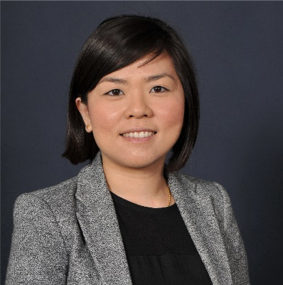School Seminar: Dr Rona Chandrawati, The University of New South Wales
Friday, 21 August 2020. 11am – 12pm.
This seminar will be delivered via Zoom – Please email [email protected] for zoom link and password.
Dr Rona Chandrawati, School of Chemical Engineering and Australian Centre for Nanomedicine. University of New South Wales, UNSW.
[Email: [email protected] ]
Host: Dr Girish Lakhwani, Self-assembled Nanomaterials
Engineering Colorimetric Nanoparticle Sensors and Nanozymes for Drug Delivery
Abstract: In this talk, I will discuss the design, synthesis, and applications of nanoparticles for sensing and drug delivery.
Polydiacetylenes (PDAs) are a class of conjugated polymers with unique optical properties that make them excellent materials for the construction of colorimetric sensors. Amphiphilic diacetylene (DA) monomers self-assemble to form vesicular structures in aqueous solution, and in organized structures, neighbouring DA monomers polymerize when exposed to 254 nm UV light to form alternating ene-yne polymer chains. Polymerization typically yields blue-phase PDAs with a characteristic absorption peak at ∼640 nm. Chemical and biological recognition events can induce a blue-to-red colour transition of PDA, which can be easily detected by the naked eye. This talk will describe examples of PDA-based sensors to enable low-cost, easy monitoring of food spoilage without the need of specialized equipment. The PDA sensors will provide a real time indication of food quality, to complement the function of traditional date marking tools.
This talk will also provide an overview of our research in nitric oxide (NO) delivery technology. NO is a potent biological molecule that contributes to a wide spectrum of physiological systems, including the cardiovascular system, immune system, and central nervous system. However, NO delivery technology remains severely limited due to its short half-life and limited diffusion distance in human tissues. Current strategies for NO delivery focus on the encapsulation of NO donors into biomaterials or an enzyme-prodrug therapy approach. The former is limited by the finite pool of NO donors available, while the latter is challenged by the inherent low stability of natural enzymes. Enzyme mimics are attractive substitutes for their natural counterparts in diverse biomedical applications because they have excellent stability against biological degradation compared with natural enzymes. In this work, we provide the first report of zinc oxide (ZnO) with innate glutathione peroxidase and glycosidase activities that catalytically decompose endogenous and exogenous NO donors to generate NO at physiological conditions. Our findings may open new routes to the next generation of NO-releasing biomaterials and devices in diverse biomedical applications.
 Biography: Dr Rona Chandrawati is a Scientia Senior Lecturer and NHMRC Emerging Leadership Fellow in the School of Chemical Engineering at The University of New South Wales (UNSW Sydney). She obtained her PhD from The University of Melbourne in 2012 and was then a Marie Curie Fellow at Imperial College London before returning to Australia in 2015 as a Lecturer at The University of Sydney. In 2018, she joined UNSW School of Chemical Engineering as a Scientia Senior Lecturer and ARC DECRA Fellow. She completed an Executive Leadership Program at the University of Oxford in 2020. She was named in Australia’s Most Innovative Engineers 2020 by Engineers Australia and is currently the Vice Chair of the Institution of Chemical Engineers (IChemE) Australia Research. Her research group focuses on developing enzyme-like catalysts for drug delivery and designing polymeric- and lipid-based nanomaterials for sensors in food safety and health monitoring.
Biography: Dr Rona Chandrawati is a Scientia Senior Lecturer and NHMRC Emerging Leadership Fellow in the School of Chemical Engineering at The University of New South Wales (UNSW Sydney). She obtained her PhD from The University of Melbourne in 2012 and was then a Marie Curie Fellow at Imperial College London before returning to Australia in 2015 as a Lecturer at The University of Sydney. In 2018, she joined UNSW School of Chemical Engineering as a Scientia Senior Lecturer and ARC DECRA Fellow. She completed an Executive Leadership Program at the University of Oxford in 2020. She was named in Australia’s Most Innovative Engineers 2020 by Engineers Australia and is currently the Vice Chair of the Institution of Chemical Engineers (IChemE) Australia Research. Her research group focuses on developing enzyme-like catalysts for drug delivery and designing polymeric- and lipid-based nanomaterials for sensors in food safety and health monitoring.

